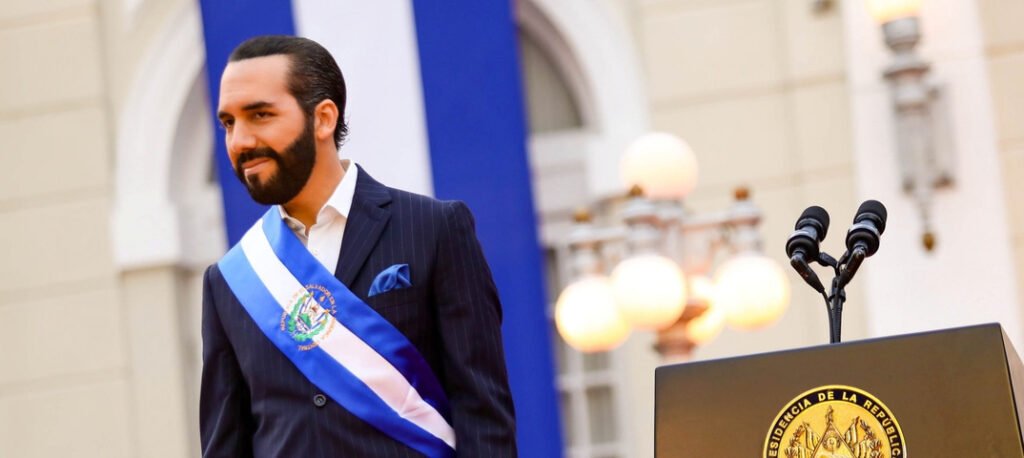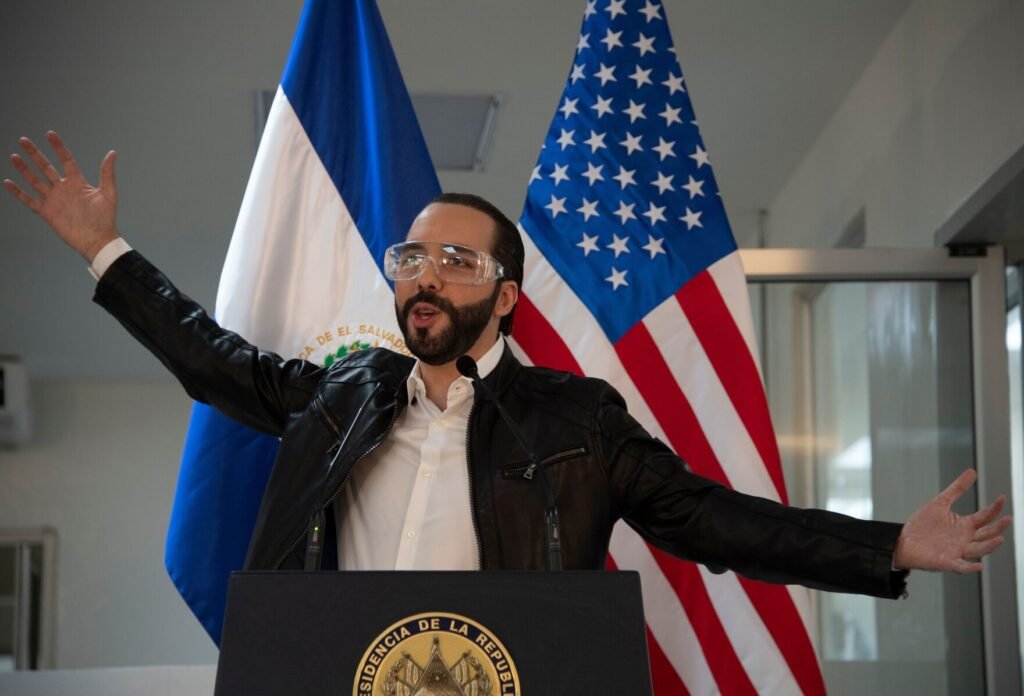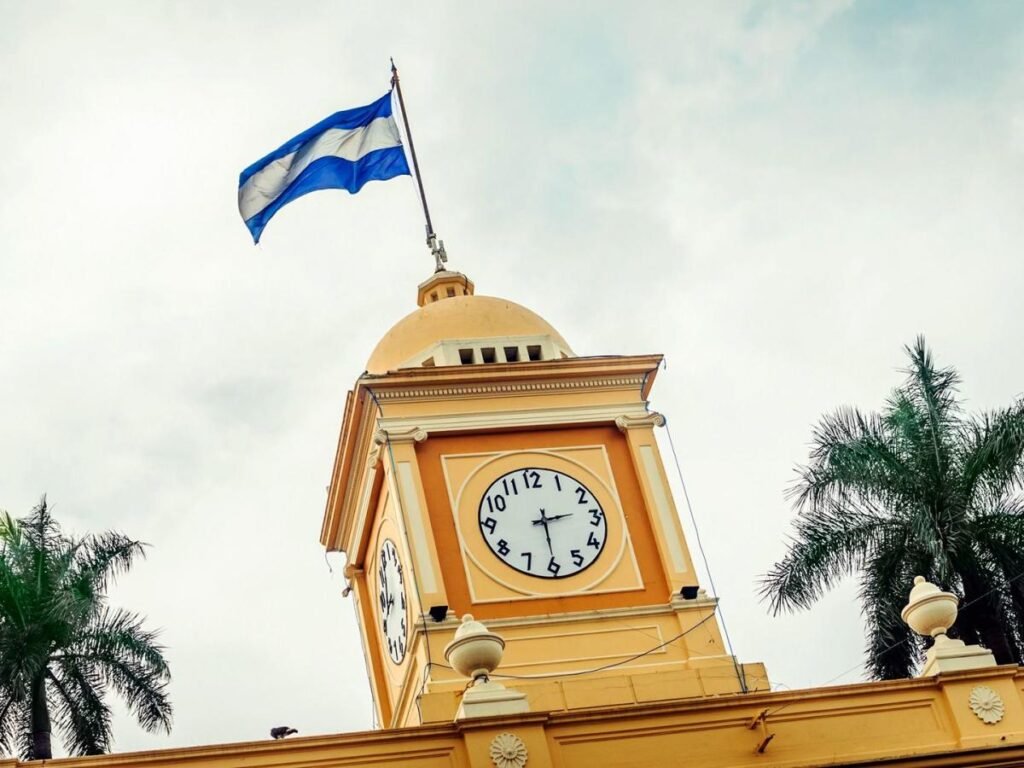El Salvador’s Democracy in Peril: Bukele’s Path Toward Authoritarianism
Bukele’s administration, in an aggressive pursuit of power, has systematically undermined El Salvador’s democratic institutions. He has openly defied constitutional limits on presidential terms, with support from a judiciary he restructured through allies in his Nuevas Ideas party. This power consolidation, along with a barrage of propaganda branding critical media as “fake news,” has severely impacted press freedom. El Faro, which has faced intense government scrutiny and Pegasus spyware attacks on its journalists, has become emblematic of this struggle, with many of its journalists fleeing the country due to safety concerns.
Bukele’s Rising Popularity Despite Authoritarian Tactics
As Bukele heads into the February 2024 election, he appears poised for victory. His popularity surged following the 2022 declaration of a state of emergency aimed at combating gang violence. This move resonated with Salvadorans, who have endured decades of gang control, and many now see Bukele’s uncompromising approach as a necessary response. His administration’s messaging highlights stories of Salvadorans affected by gang violence rallying behind the slogan “Nunca más” — “never again.” This media campaign appears effective; a December 2023 poll by the Instituto Universitario de Opinión Pública indicated that two-thirds of Salvadorans continue to trust Bukele.
While public support for Bukele remains strong, Rauda notes that much of the population’s understanding of the political implications remains limited. State-sponsored media dominate the landscape, with every outlet, influencer, and digital channel amplifying government narratives, leaving independent journalism struggling to break through. “The government has access to virtually every media channel, from radio to social media influencers,” Rauda explains. “Independent journalism simply can’t compete at that scale.”
Democracy Erodes as Authoritarianism Grows
Bukele’s government began its push toward authoritarianism in May 2021, when his party, Nuevas Ideas, replaced the Supreme Court’s magistrates with party loyalists, sidestepping traditional legal processes. El Faro quickly labeled Bukele’s regime a “dictatorship” and has continued reporting on the president’s efforts to justify his actions. Investigative work by El Faro’s journalists has included combing through historical records and consulting legal experts, exposing the dubious legal maneuvers that undergird Bukele’s reelection bid.

Rauda sees a sense of security in El Salvador as deeply misleading. Gang violence may be down, but he argues that the country is rapidly turning into a police state. “El Salvador today offers a kind of conditional safety,” he explains. “But if you happen to cross the government, your options for justice are nearly non-existent. People are afraid to speak out.” This fear has been compounded by mass detentions and human rights abuses under Bukele’s state of emergency, yet these issues have not dented his support among Salvadorans.
The U.S. Response and Democratic Backsliding
The United States, long a promoter of democracy in El Salvador, has hesitated to fully acknowledge the erosion of democratic norms. After years of investing millions in democracy promotion and supporting El Salvador’s transition to democracy, U.S. officials are reluctant to admit that the country is sliding into authoritarianism. However, overlooking Bukele’s regime threatens to diminish the democratic gains Salvadorans fought for and risks putting the lives of deported Salvadorans in danger as they return to an increasingly repressive homeland.

Press Freedom Under Siege
El Faro’s commitment to press freedom has come at a high cost. Following continuous government surveillance, the outlet relocated its headquarters to Costa Rica last year. Sergio Arauz, El Faro’s deputy editor and an active figure in the Asociación de Periodistas de El Salvador (APES), describes the organization’s work to support journalists in crisis, including offering legal aid and creating safety protocols. The threats faced by journalists in El Salvador highlight the challenges of operating under a government that actively suppresses dissent. “Bukele tightly controls what can be said,” Arauz notes. “While the government’s repression may create a sense of calm, it comes at the cost of freedom.” Bukele’s authoritarian style is partly a product of the failure of El Salvador’s Left. The Farabundo Martí National Liberation Front (FMLN), which governed from 2009 to 2019, failed to address the deep economic needs of its people, leaving an opening for Bukele’s rise.
By positioning himself as the champion of the working class and promising security, Bukele has tapped into widespread frustration, creating a formidable political brand.
“Bukelismo” and the Illusion of Security
Bukele’s ability to project security hinges on the state of exception, under which gang violence is suppressed, but with no guarantee of lasting peace. While gang leaders have left the country, possibly with the government’s assistance, the surge in state-perpetrated violence and arbitrary detentions tells a different story. Civil society members describe staying silent to avoid government reprisal, a troubling shift reminiscent of past gang rule when Salvadorans were expected to “see, hear, and shut up.” This new form of self-censorship highlights the extent to which Bukele’s government has reshaped public discourse.
In such an environment, journalists continue their work, aware that most Salvadorans remain silent. “Democracy’s value is difficult to explain here,” Arauz comments. “People see Bukele’s policies as addressing their daily needs. Explaining the importance of rights and freedoms is an ongoing challenge.”


